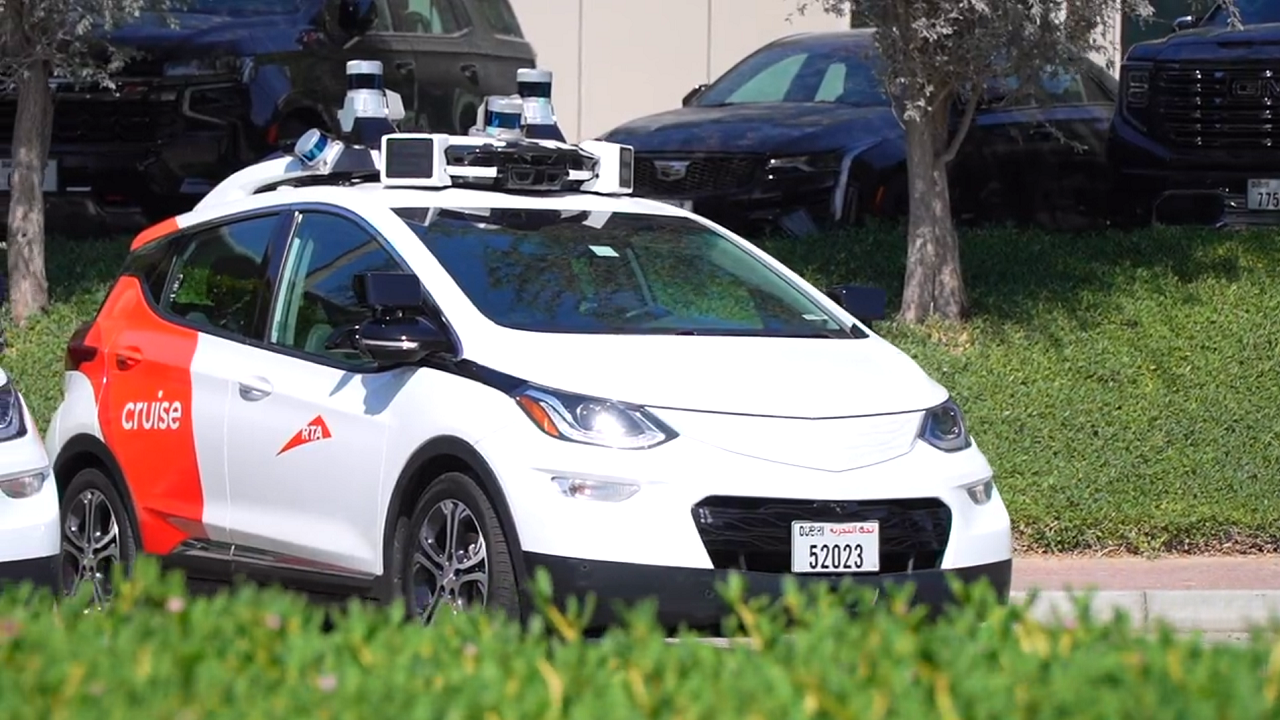
|
|
The recent passing of a new autonomous vehicle (AV) law in Dubai highlights the emirate’s tenacious commitment to innovation. But there is much to do before we see driverless taxi services on the roads.
Dubai’s ambition to place itself at the forefront of autonomous transport is exciting because it is unprecedented. However, this very same lack of precedent means it cannot lean on the experiences of others to develop new regulations, technologies or infrastructure.
Dubai’s plans switched into high gear in 2021 when the Roads and Transport Authority (RTA) signed an agreement with General Motors’ autonomous vehicle company Cruise to operate its self-driving taxis and ride-hailing services. The agreement will make Dubai the first city outside the US to offer Cruise’s driverless taxi services, with a goal of putting 4,000 AVs on the road by 2030.
The Dubai Smart Mobility Strategy aims to convert 25 percent of total transportation journeys into trips via self-driving transportation by 2030, including driverless rail transport.
The new Law No.9 of 2023, passed last week by Sheikh Mohammed Bin Rashid Al Maktoum, vice president, prime minister and ruler of Dubai, is not the first legislation to support the emirate’s future driverless vehicle services sector. The law follows resolutions made by the emirate’s executive council, local legislation development led by the RTA and UAE laws issued at a federal level to allow temporary licensing of AV trials.
But on the legal front Dubai must innovate when it comes to regulation. There are simply no comprehensive laws or guidelines in place for the public use of autonomous vehicles anywhere else.
For example, the UK government plans to allow autonomous vehicles on the road by 2025. However, a closer look shows that British regulation so far only covers testing, insurance and liability. Further afield, the EU has implemented a framework for approving level 3 and 4 AVs but offers little detail on their operation on the road. Meanwhile, the world’s most extensive driverless vehicle trials, which are taking place in China and the US, have only been authorised via case-by-case permissions issued by authorities. This is also true of the UAE’s trials.
Given the emirate’s ambitious roadmap, Dubai’s partnership with Cruise is a smart move. The US company was one of two operators to receive a permit to offer paid driverless taxi services in California in 2021. Early last year it began offering services within designated areas of San Francisco, but only between the hours of 22:00 and 06:00. The company now operates about 300 robotaxis across San Francisco, Austin and Phoenix.
However, no new technology is without its teething problems. US media have reported a variety of complaints related to the San Francisco trial, including immobile cars blocking traffic, multiple vehicles stopping in the middle of the road and incorrect signalling. In March a Cruise robotaxi bumped into the rear of a San Francisco bus, prompting an urgent software recall across its entire fleet of AVs.
While Dubai’s modern road infrastructure and digital traffic management are both big pluses for future AV services, the city still has its own unique set of physical and digital characteristics, operational needs and system integration requirements to consider. City-specific behavioural factors also apply relating to motorists, pedestrians and passengers. So, notwithstanding Cruise’s past two years of service trials in California and the five years of testing before that, only so much can be taken for granted as the US AV firm and the RTA work together on Dubai’s driverless services.
At this point in time, the RTA is perhaps the only public transport authority in the world that is developing an ecosystem to put 4,000 driverless taxis on the road in one city.
This is why innovation, not best practice, must drive Dubai’s autonomous vehicle plans.
This article first appeared in Arabian Gulf Business Insight.
by Carrington Malin
Carrington Malin is a UAE-based marketing and communications professional, consultant, entrepreneur and writer with many years experience of building brands, driving growth and leading high-performance teams. He has worked with a wide range of high-growth, technology and tech-driven ventures across ecommerce, consumer products, digital services, B2B, media, software, hardware and other sectors. These days he focuses mainly on emerging technology ventures related to artificial intelligence (AI), augmented reality (AR) / virtual reality (VR), blockchain, drones, Internet of Things (IoT), robotics and smart cities.

